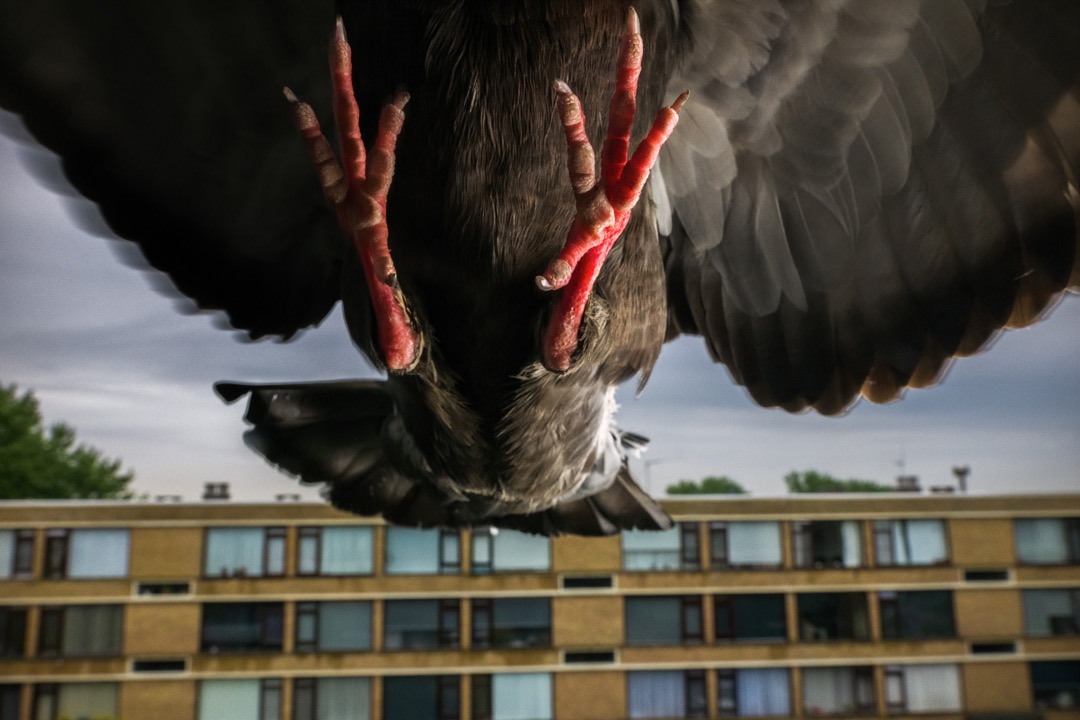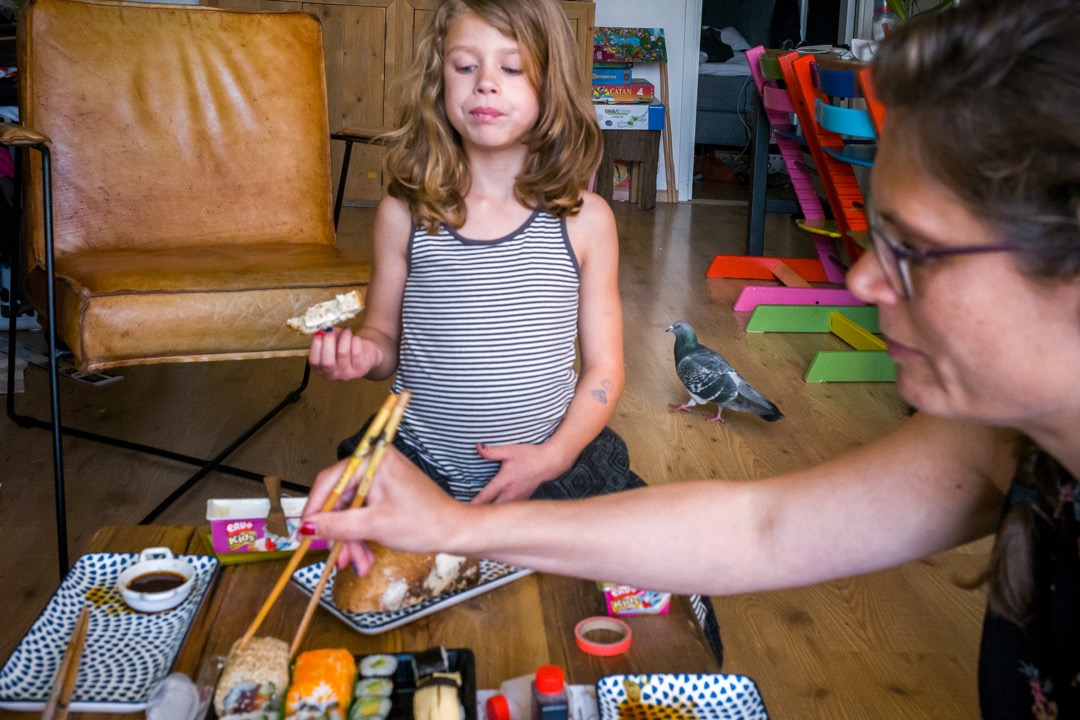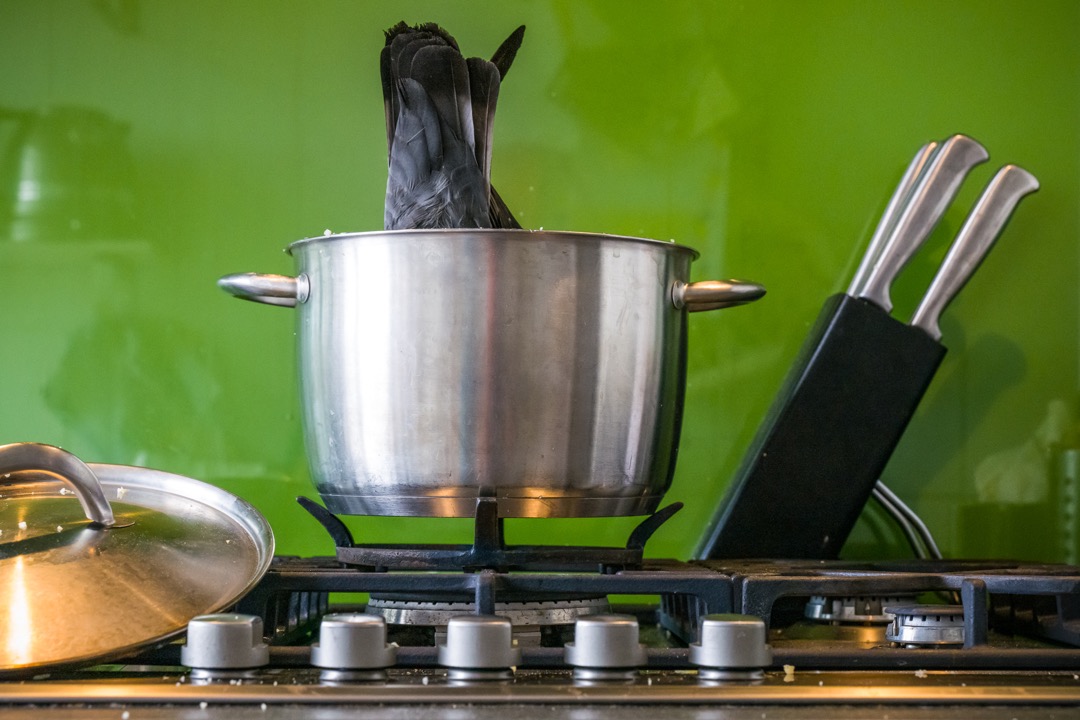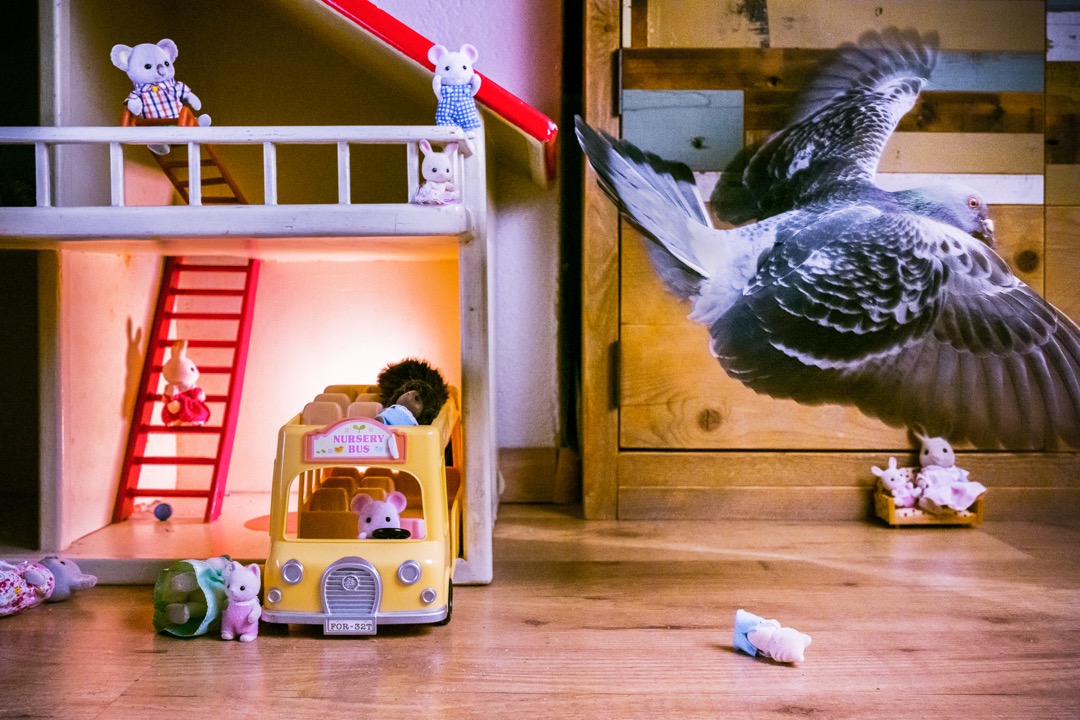A pair of feral pigeons befriended the photographer’s family, who were isolated in their apartment in Vlaardingen, the Netherlands, during the Covid-19 pandemic, in April 2020. Ollie and Dollie, as the family named them, would visit the photographer’s house on a daily basis and kept everybody sane during a very challenging time.
Feral pigeons (Columba livia domestica) are descended from the rock dove, which naturally inhabits sea cliffs and mountains. They find the ledges of buildings to be substitutes for sea cliffs, have adapted to urban life and surroundings, and now live in urban areas on every continent except Antarctica, with a global population in the hundreds of millions. Rock doves were the first birds to be domesticated, between five and six thousand years ago, in Mesopotamia. They were bred for food, and later trained to carry messages. Birds escaping or released from a domestic environment became the first feral (or city) pigeons. Although they are believed to be vectors of diseases, the evidence is to the contrary. It is rare for city pigeons to transmit a disease to humans, and while they do transmit contagions such as Salmonella and avian mites, infecting mammals is rare.
This story is not only about a couple of pigeons but it is a reminder that we are not alone on this planet and that we need to share our spaces with the species that surround us. We’re part of an ecosystem and we depend on this for our own survival, even when living in a concrete jungle.




